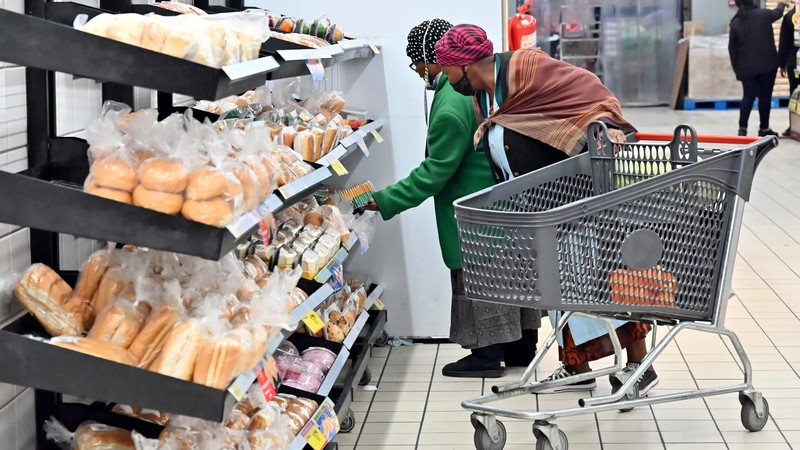Experts have warned that while the decision to scrap the planned 0.5% VAT hike appears compassionate on the surface, experts warn that it could merely mask the deeper systemic issues afflicting the nation’s economy and political landscape.
In a move that has sparked mixed reactions across the nation on Thursday, the South African government recently announced that it will not increase the Value-Added Tax (VAT) rate in the upcoming fiscal period.
According to the National Treasury, this decision is aimed at providing temporary relief to the country’s struggling poor communities, who are often hardest hit by rising living costs.
The National Treasury’s decision to hold off on increasing VAT comes amid a challenging economic environment marked by sluggish growth, high unemployment, and persistent inequality.
Traditionally, VAT increases are viewed as a straightforward way for governments to boost revenue without directly taxing income or profits, which often face resistance from voters and business groups.
Yet, in South Africa’s case, raising VAT has often been criticised for disproportionately affecting people experiencing poverty, who spend a larger share of their income on consumption.
Dr Metji Makgoba, a senior lecturer at the University of Limpopo and an independent political analyst, said that by choosing not to hike VAT, the government has ostensibly aimed to shield the most vulnerable from further financial strain.
“This is a temporary relief for the poor, but it’s not a political victory when you look at the broader picture. The underlying issues of economic inequality and racial capitalism remain unaddressed.”
Racial Capitalism and Structural Inequality
Makgoba emphasised that South Africa’s economic relations are primarily governed by what he describes as “racial capitalism”—a system that perpetuates racial inequalities through economic exclusion and systemic bias.
He argued that the decision not to increase VAT is superficial.
“It doesn’t challenge the structural inequalities that keep the majority of Black South Africans in poverty. Instead, it maintains a system that benefits a small elite while the majority suffers.”
Another independent political analyst, Joe Mhlanga, echoes this perspective, believing that the core issues lie in the broader economic policies that favour the wealthy and powerful.
“The power that drives policymaking in South Africa is anti-poor. The ruling elite’s focus on market stability often comes at the expense of the marginalised, who become the punching bags of these policies,” said Makgoba.
Public Sentiment and Market Dynamics
Market considerations have also influenced the decision. Mhlanga suggested that the government’s priority is maintaining political stability and investor confidence.
“The markets depend on predictable policies. The government’s reluctance to increase VAT reflects an understanding that instability can deter investment. It’s about pleasing the markets, even if it means sacrificing the needs of the poor.”
Mhlanga stated that this approach underscores a fundamental flaw.
“VAT is not a core factor in the economic relations of domination, but rather a symptom of deeper structural issues. The real power lies in the policies that favor capital and maintain existing hierarchies,” he explained.
He further argued that VAT is a tool, not the root cause of economic inequality.
While the government’s decision may offer short-term relief, both Makgoba and Mhlanga warned that without addressing the underlying structural issues—racial capitalism, economic exclusion, and the skewed distribution of power—South Africa’s inequalities will persist.
“The poor are often used as pawns in a game the ruling class plays. Until we confront the systemic roots of inequality, superficial measures like avoiding VAT hikes will do little to change the status quo,” said Makgoba.
Politics
